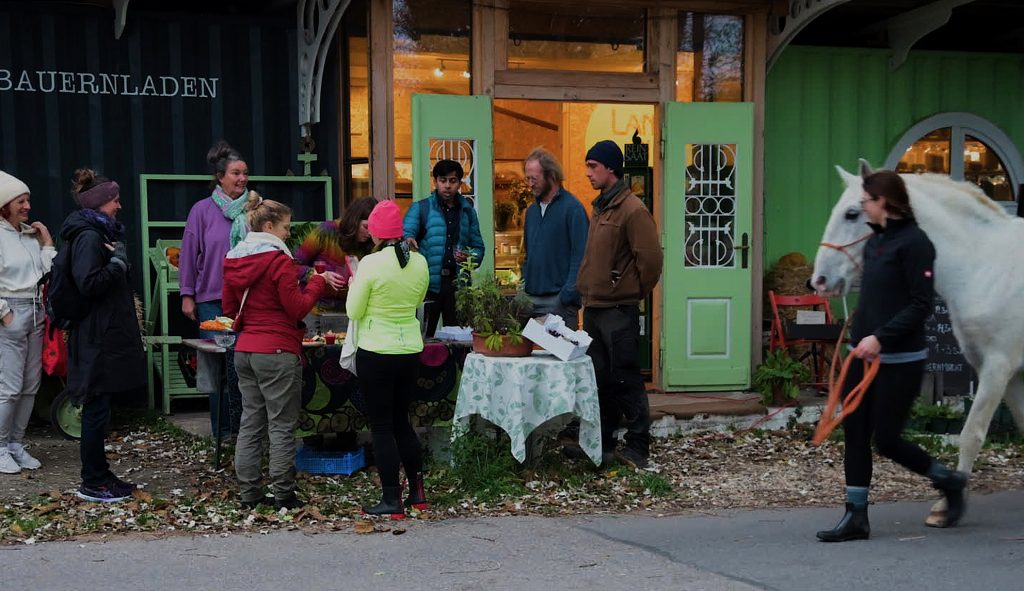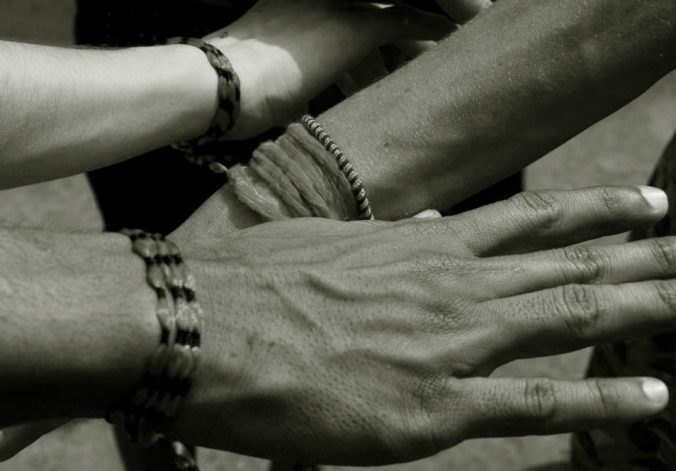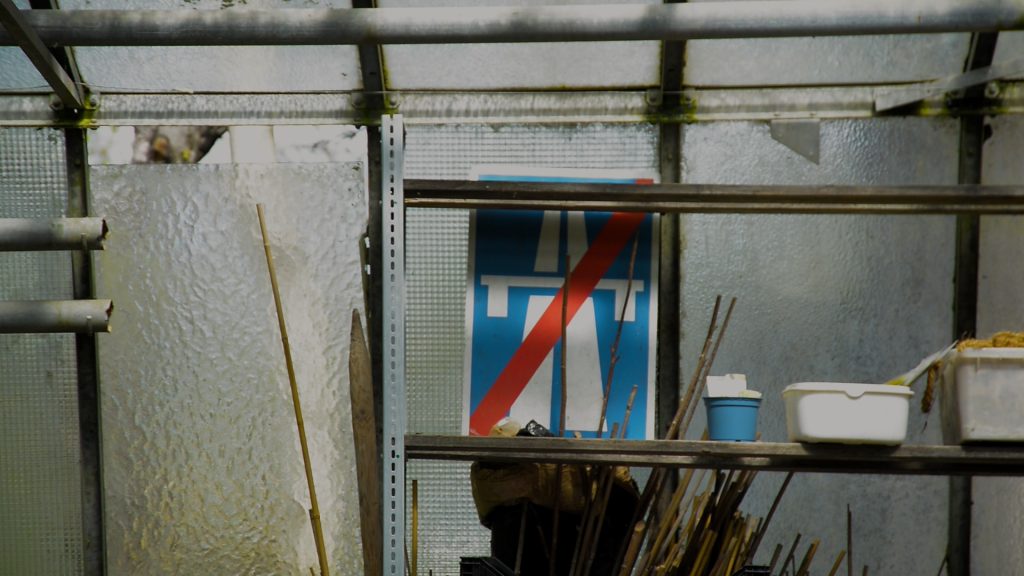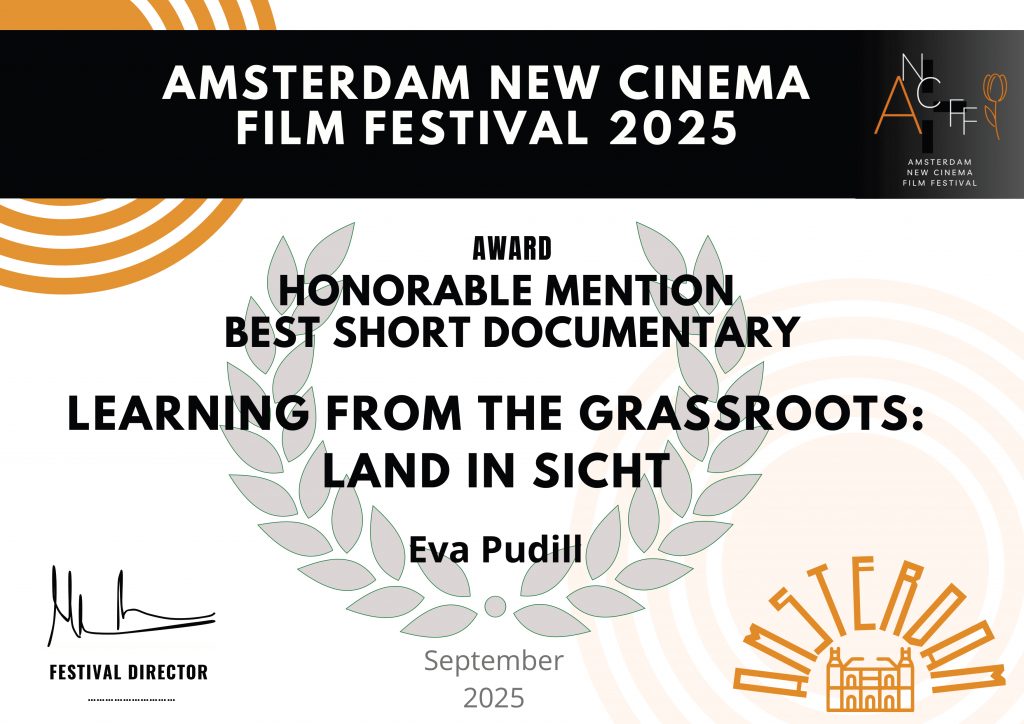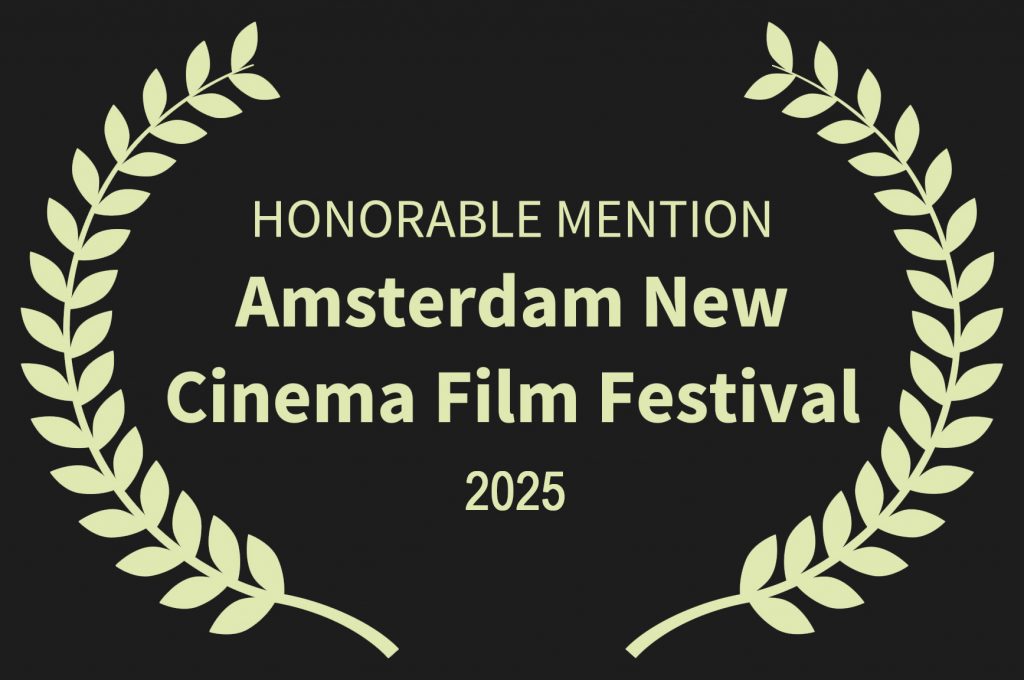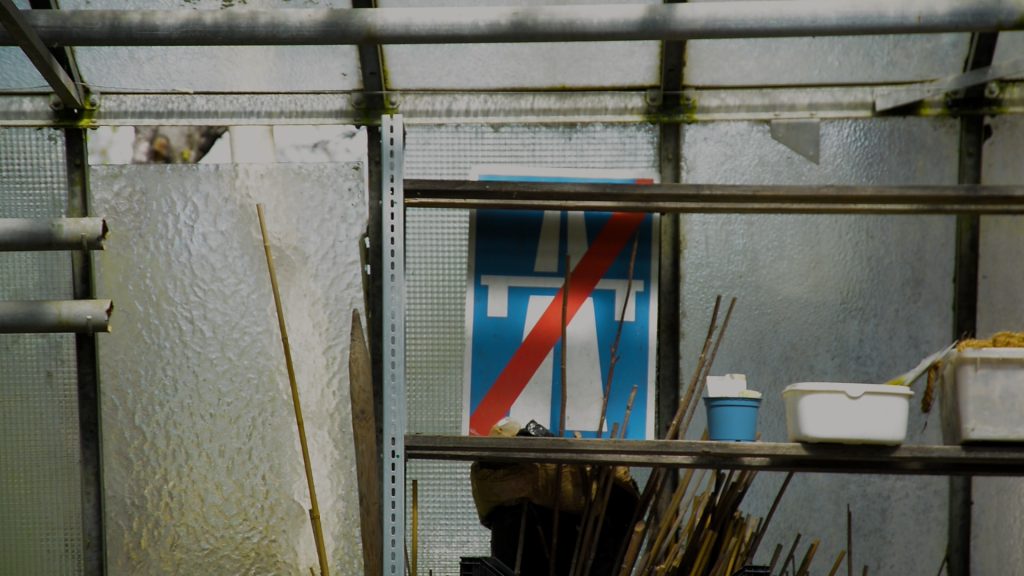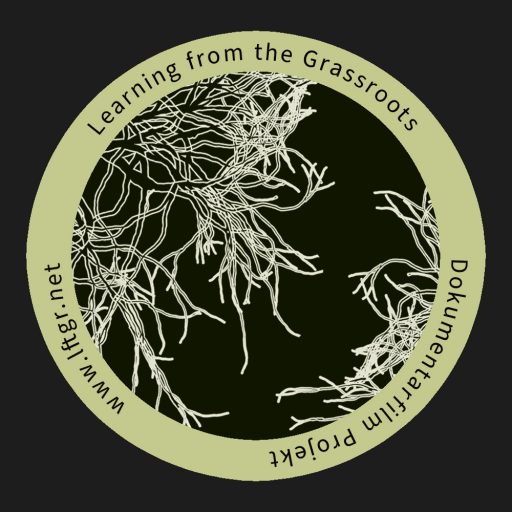The need to belong to a community and take collective action is constant throughout human history. Capitalism, and with it the rise of populism in politics, has tended to emphasize individualism and isolate the individual, appealing to their selfishness. However, the fundamental desire to stand up for a shared cause or to live in a community beyond the nuclear family has endured.
„Far from being a primitive form of organization, the family is rather a very late product of human evolution. As far back as we can go in the paleo-ethnology of mankind, we find people living in societies […] Societies, hordes or tribes – not families, were thus the original form of organization of mankind and our earliest ancestors.“
Peter Kropotkin, ‚Mutual Aid‘, German edition published by Theodor Thomas 1908, p. 80
Community reimagined
While the divisive effects of selfishness are well known, individualism in today’s capitalist society does not necessarily prevent us from joining others. In fact, it encourages us to make more conscious choices about which societies we join. Rather than being born into a community, postmodernism enables us to seek out and shape our own communities according to our visions and desires.
This gives rise to a new understanding of belonging. Community is no longer predetermined; it is something we actively create through collective action. We connect not only through origin or tradition, but also through shared values, ideas, and attitudes towards life. When people come together because they are motivated by similar questions and seek similar answers, a different kind of togetherness emerges — one that is more open, adaptable and intentional.
However, this freedom also has its drawbacks. The more community becomes a choice, the more fragile it can seem. Relationships and groups change when life paths diverge or priorities shift. Community is therefore no longer a stable state, but an ongoing process — a space that must be recreated time and again. However, maybe its strength lies precisely in this: the possibility of considering freedom and connectedness together, rather than pitting them against each other.
The new „we“ in the era of the „I“
Associations form and dissolve so that the community is not bound together for life. Perhaps sects are the remnants of coercive communities, which tend to be authoritarian due to their tendency to isolate themselves. In contrast, voluntary associations can be formed and organized in a more sociocratic way, providing a model for a freer, less hierarchical society. Collective action can be learnt and become habitual through participation in clubs, associations and active social networks (i.e. not Facebook and similar platforms).
This new sense of „we“ does not stem from submission, but from negotiation. It is based on the belief that diversity is a resource, not a risk. These flexible ways of working together demonstrate a culture of listening, consensus, and shared responsibility. Rather than being made from the top down, decisions are now made through conversation, participation and collaboration to find balance.
This changes the way individuals relate to the collective. The self is not lost in the „we“ but rather finds resonance there. Community becomes an exercise in mutual respect — a space in which autonomy and solidarity reinforce each other. The new „we“ is therefore not a regression to outdated forms of bonding, but a progression towards a cohesive society.
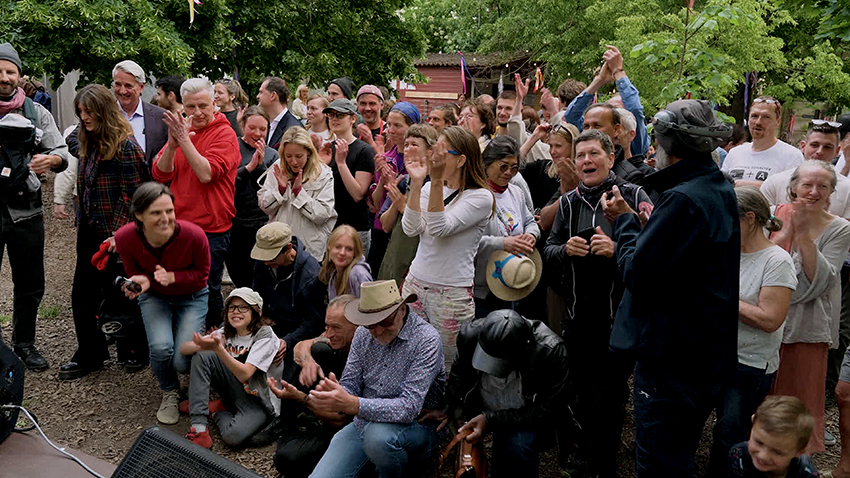
Civil society: the power of the in-between
Clubs, associations and social networks are generally neither state-directed nor profit-driven. Civil society is the sphere in which people organize themselves independently to pursue shared interests and help shape social change.
This concept has deep historical roots, from Montesquieu’s idea of the separation of powers, which limits state power, to Hegel’s systematic distinction between the state and civil society, and Alexis de Tocqueville’s emphasis on voluntary associations as the basis of a vibrant democracy. According to this view, civil society can prevent the ruling classes — today, international corporations and their lobbies — from ruling despotically.
The real power of democratic societies lies in this intermediate zone. Opinions are formed here, interests are negotiated, and social innovations are tested long before they become political or economic realities. Civil society is therefore a laboratory for social imagination — a place where citizens organize themselves beyond institutional power structures and practice collective action.
In an era of declining political credibility and growing economic influence in everyday life, this sphere is assuming new significance. It acts as a social corrective, balancing power and powerlessness, market and morality, public order and individual freedom. Its strength lies in networking — the ability to bridge differences and share responsibility. Civil society embodies the power of the in-between, maintaining the spaces in which democracy is practiced, not merely administered.
The contested space of freedom
Even in an open society, however, the space in which public power can operate must continually be reclaimed through collective political action. In a democratic society, freedom is not a given situation, but an ongoing process that requires the commitment of citizens to protect and strengthen it.
Freedom can never be taken for granted; it must continually be defended against authoritarian pressures, monopolized economic interests, and the compulsion to standardize. It is in this context that the concept of „public space“ emerges as an arena in which conflicts between individual rights, collective interests, and state authority are negotiated.
However, civil society movements and networks not only defend democratic space, they also constantly expand it by making it more inclusive and diverse. After all, civil society plays a vital role in promoting social cohesion and integration. In a world of growing social differences and political polarization, civil society organizations provide a platform for dialogue. They help to hold society together by connecting people from different backgrounds, beliefs and interests and by encouraging them to work together for shared causes.
In the crosshairs of authoritarian politics
However, it is becoming increasingly clear that the concept of civil society, a key protective mechanism against the concentration of power, is under more pressure today than ever before.
On the one hand, civil society movements are facing growing opposition: Those campaigning for social justice, human rights and environmental protection are being targeted by right-wing and conservative parties and governments. Authoritarian actors not only question the legitimacy of these movements, but they also discredit their causes as „unnecessary“ or „dangerous“ disturbances to public peace and economic growth. In many countries, activists face not only verbal attacks, but also state repression in the form of monitoring, criminalization and silencing, whether through bureaucratic hurdles or legal bans. In many parts of the world, the fundamental rights of civil society as a check on power are being restricted, yet its role as guardian of democracy and minority interests remain crucial.
A collective shift in consciousness
On the other hand, we are witnessing an extraordinary collective shift in consciousness. Rarely in history have so many people taken to the streets with such determination to defend the spaces of civil society and underscore their importance for democracy and freedom. Millions of young people worldwide are joining the Fridays for Future climate strikes, urging policymakers to protect the planet and commit to a sustainable future. Across Italy and far beyond, people are marching in solidarity with Gaza, joining a global movement for dignity and human rights.
In the United States, millions have participated in “No Kings” demonstrations, resisting the rise of authoritarianism and standing up for democratic principles. Meanwhile, at the Climate Summit COP30 in Belém, thousands of indigenous people from Brazil, and around the world are protesting against the international community’s performative sustainability campaigns. Many of them travelled 3,000 kilometers through the Amazon with the „Yaku Mama“ („Mother Water“) flotilla to raise their voices at least in Belém – outside the Cop 30, to which they, unlike the fossil lobby, were not invited.
All these protests show that people are aware of the need for a strong and active civil society. In an increasingly fragmented political climate, more and more people are recognizing that public space is not merely a stage for symbolic gestures. It is a living arena where competing visions of the future collide, where shared norms are negotiated, and where the boundaries of what is politically possible can be stretched. Public squares, streets, and community forums have re-emerged as critical infrastructures for collective meaning-making, places where individuals encounter difference, test their convictions, and form solidarities that transcend national, generational, and ideological lines.
Political action as a new beginning
These mobilizations therefore represent far more than spontaneous reactions to isolated injustices or short-term crises. They reflect a deeper, more structural shift: a growing recognition that civil society is not an auxiliary component of democracy but its beating heart. It is within civic networks, grassroots organizations, and mass mobilizations that democratic culture is renewed, that authoritarian tendencies are challenged, and that alternative social imaginaries are nurtured. The courage with which people are stepping into public life—often at great personal risk, facing arrest, repression, or targeted defamation—signals a collective understanding that freedom is not self-sustaining.
Another aspect of this contested space is that civil society is tasked not only with resisting, but also with developing alternative solutions and models for the future. It is a space for defense, vision and collective action. Models for a different economy, a fairer society, and a more livable future for all are created here. It is in this spirit that “Learning from the Grassroots” was born. The project seeks to explore spaces where people come together not only to resist, but to act collectively and create new forms of life, organization, and belonging.
Philosopher Hannah Arendt describes this collective, political action as a second birth. According to her, we are born into a world that exists before we are born. But as soon as we become aware of our existence, we intervene in events by speaking and acting. With her concept of natality, Hannah Arendt draws attention to the fact that the unique perspective of the individual awakening to his or her second birth through collective action contains something radically new, a possibility of action that did not exist before. This second birth affirms and takes responsibility for the very fact of being born (Greek: Zoé) through collective, meaningful action.
„Power itself, in its true sense, can never be possessed by one person alone; power always appears in a mysterious way, as it were, when people act together, and it disappears in no less mysterious ways as soon as a person is completely with himself.“
Hannah Arendt, in: „Politik und Verantwortung. Zur Aktualität von Hannah Arendt“ Offizin, 2004, p. 26 (citations from the German edition; English edition: „Origins of Totalitarism“ Harcourt, Brace, Jovanovich, 1973).
